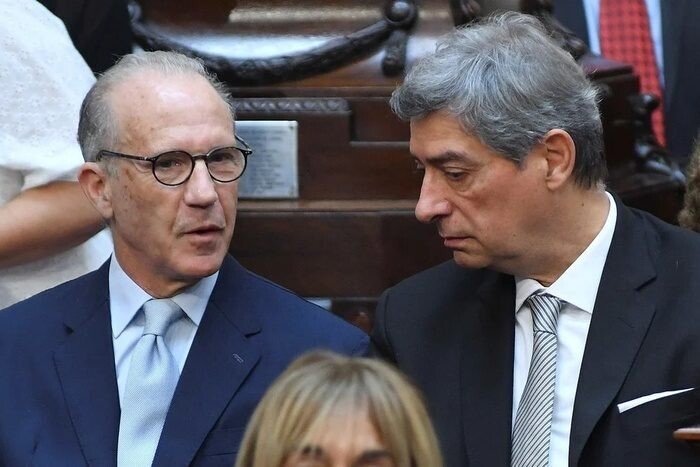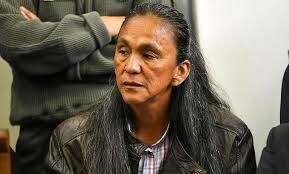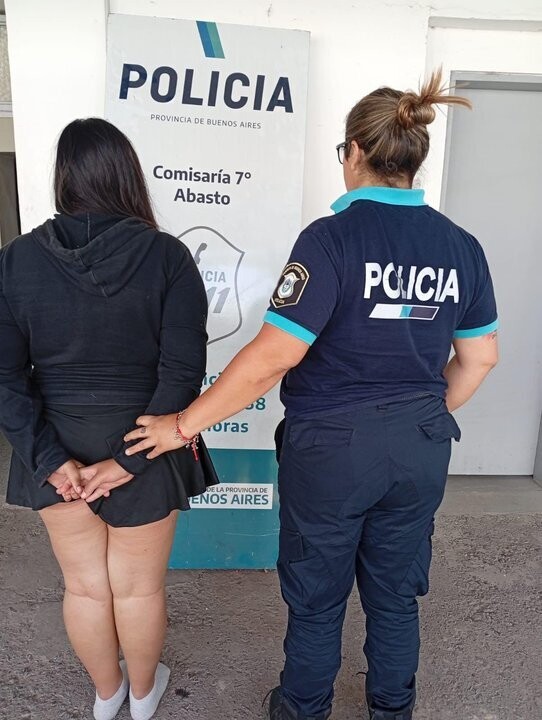
The Supreme Court reviewed the decision of the Federal Chamber of Criminal Cassation to release Alfredo Astiz, Jorge Eduardo Acosta, and other repressors who acted at the Navy Mechanics School (ESMA). In the Acosta case, the Court had stated that in crimes against humanity cases, not only the capacity to flee or obstruct the investigation must be weighed, but also other factors, such as the complexity of the case, obstacles to investigation and trial, the accused's conditions, the rigor of the precautionary measure, and the progress of the case. Many criminals remain in that state due to the delay the Supreme Court itself has in reviewing their sentences. There is concern about the effect of the ruling, which could generate a flood of requests to regain freedom. The Court chose the case of Carlos "Indio" Castillo, a member of the National University Concentration (CNU) – the far-right group that operated in La Plata and Mar del Plata before the coup – to send a message tending to show that the justice process for crimes against humanity is not as model as it is claimed. "A State of Law cannot transgress the guarantees of due process without degrading itself in that act," they wrote when revoking a ruling from the Federal Chamber of Criminal Cassation that had upheld the extension of preventive detention for Castillo, who has been detained since 2013 and was convicted in 2017 in the first trial on the actions of the CNU in La Plata. He has a life sentence, which was confirmed by Cassation, but not by the Court. The Court seems to have listened to them. A clear path for repressors. The general interpretation in the courts is that with this ruling, the Court opens the door to all repressors who are detained and do not have firm convictions. Lorenzetti voted against. The Supreme Court, with a special composition, made the gesture that much of the Government and pro-repressor sectors were demanding by ruling that requires lower courts to provide meticulous justification for keeping criminals of the last dictatorship in preventive detention. "One has to see what relationships allow that," he hinted. The Court asked lower courts for "concrete indications" when keeping a person accused of crimes against humanity in detention. "In the event that judges adopt such an exceptional measure, they must comply with a rigorous argumentative burden that justifies why the right of the accused to traverse the criminal process in freedom is so severely restricted," they emphasized. A made-to-order Court. Since there was no agreement in the Court to sign this ruling, Horacio Rosatti and Carlos Rosenkrantz, authors of the 2×1 ruling, had to call in ad hoc judges. "In jurisdictions like ours, with substitute judges who grant us hearings of barely two hours weekly or even biweekly, which implies endless trials and eternal waits for setting dates, it is the majority situation we face. Alejandro Tazza, of the Federal Chamber of Mar del Plata, and Abel Guillermo Sánchez, of the Federal Chamber of Córdoba, joined them. Ricardo Lorenzetti was the only member of the highest court to speak out against the defense's motion for "Indio" Castillo. "It a disguised 2×1," different magistrates agree. "They establish more restrictive standards for the granting of successive extensions of preventive detention, which is the situation in which most of the accused in lesa cases find themselves, at least in the La Plata jurisdiction," states lawyer Guadalupe Godoy, a member of the Argentine League for Human Rights (LADH). The confirmation of sentences depends on the same Court, which delays the review for years. According to statistics from the Federal Penitentiary Service (SPF), there are 36 repressors in preventive detention – that is, without a firm sentence – and 28 convicted in Unit 34 of Campo de Mayo, where Patricia Bullrich piled them up at the beginning of the year. Smart was first convicted in 2012, but the Court still has not had time to review any of the sentences against him. "The Court could also prevent the eternal preventives that even many of the convicted who do not have a final sentence have, a firmness that they also manage at their will, as demonstrated by the shelving of extraordinary appeals for years in several of the crimes against humanity cases in La Plata," protests Godoy. "Those of us who asked for celerity were always the complainants," points out lawyer Myriam Bregman, president of the Center for Professionals for Human Rights (Ceprodh). At that time, the Supreme Court had taken up the Acosta case because it demonstrated the power that the head of intelligence of the ESMA task group had, who said he spoke with "Little Jesus" to decide who would go up – that is, who would be thrown alive in the death flights. On this occasion, the courtiers made a rereading of their own jurisprudence in which they seem to understand that the extension of preventive detention is only based on the seriousness of the crimes with which the accused are charged. "The legitimate general interest of the State in repressing the crime cannot be invoked as a pretext to annul the guarantees of the accused or to justify the imposition of an advance of the penalty outside the National Constitution," they wrote. The ruling also insists that the extension of preventive detention is an exceptional measure. The decision was again pushed by Rosatti and Rosenkranz, as in the 2×1, but they had to call in ad hoc judges. Castillo and his partner, Juan José 'Pipi' Pomares, have often managed to obtain judicial protection. He also demanded that it be effectively verified if he can obstruct the investigation – among which he included possible threats to witnesses. "When a court considers that an accused of crimes against humanity retains influence to frustrate the action of justice, either through accomplices or unknown participants who formed part of the apparatus through which those crimes were committed – as was said in 'Acosta' – or in any other way, they must point out the concrete circumstances through which, according to a rational judgment of probability, said influence could materialize," they ordered. Law 24.390, known as the 2×1 law, establishes that a person cannot be held in preventive detention – that is, without a firm conviction – for more than two years. "There is a serious conceptual error in the Court's ruling: they are not ex-repressors, but rather, to this day, they continue to commit the crimes for which they are accused because they do not say what they did with their victims. A punishment that says nothing about how to resolve that situation," adds someone. The Court, for example, has for years been without resolving the cases involving Jaime Lamont Smart, who was Minister of Government of the Province of Buenos Aires during the dictatorship and continues to be one of the most influential civilians linked to state terrorism. He argued that it was necessary to value the particular circumstances that could condition their capacity to evade justice, such as age or physical and mental conditions. Only this situation can be extended for one more year. That discussion took place in the first years after the reopening of cases of crimes against humanity and was settled by the Supreme Court in the ruling known as "Acosta", issued in 2012. Those 36 will probably make motions to get out.














